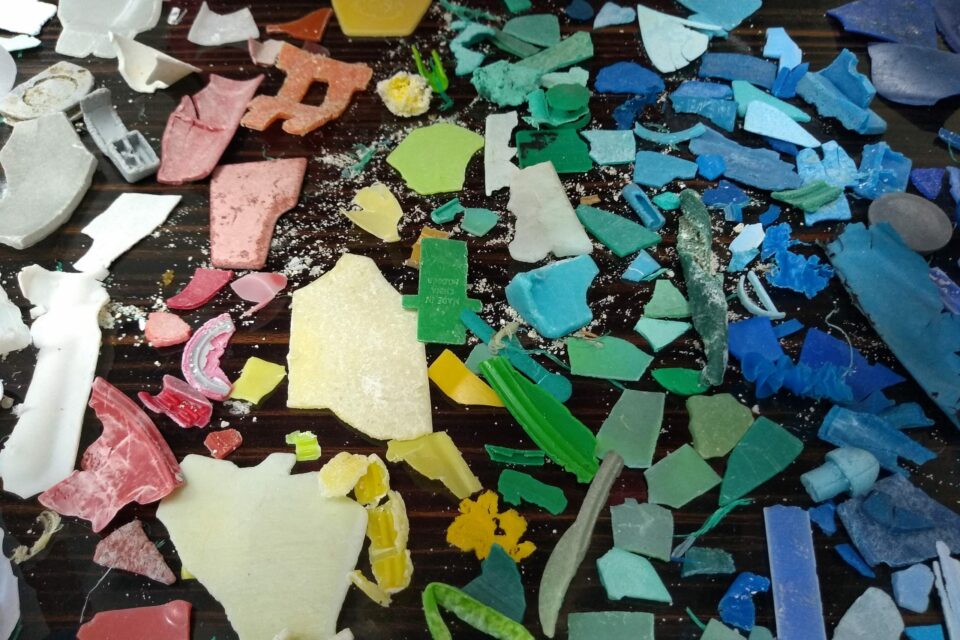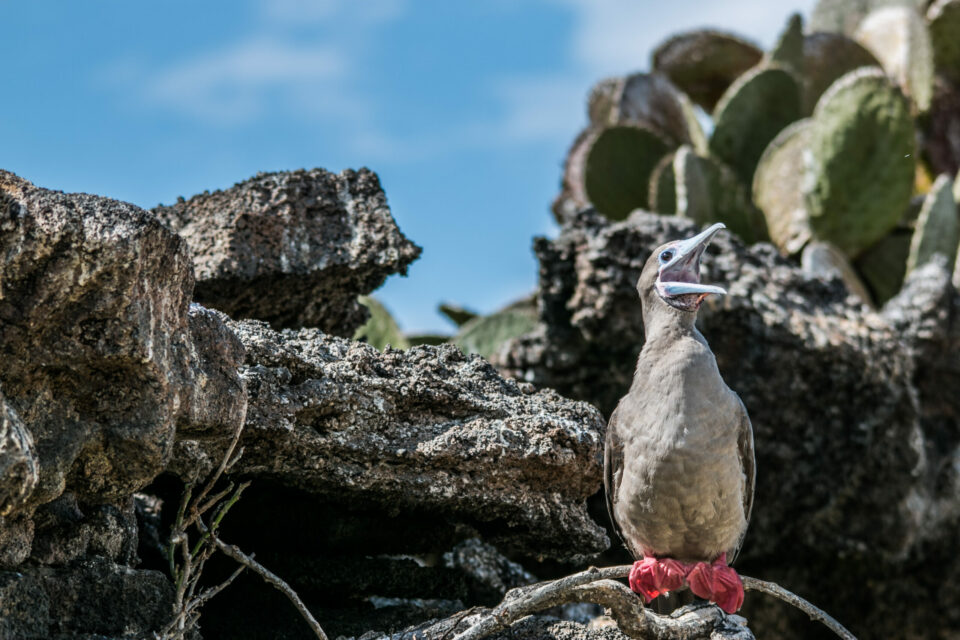

Building a circular economy to make Galapagos plastic pollution free
We’re so pleased to announce today that the alliance behind the Plastic Pollution Free Galapagos programme (PPFG) has been successful in seeking £3.5 million in funding from the UK Government Global Challenges Research Fund.
We’re so pleased to announce today that the alliance behind the Plastic Pollution Free Galapagos programme (PPFG) has been successful in seeking £3.3 million in funding from the UK Government Global Challenges Research Fund. The new project ‘Reducing the impacts of plastic waste in the Eastern Pacific Ocean’ will be led by the University of Exeter and Galapagos Conservation Trust and will underpin the work currently being done within the PPFG programme. The research will be undertaken by seven universities, several NGOs, government organisations and industry partners over the next four years in Galapagos, mainland Ecuador, Peru and Chile. It will build on existing initiatives in the Galapagos Marine Reserve and wider region to trial interventions to combat major pollution sources in the Eastern Pacific Ocean. The goal is to understand the pathway to a more circular plastic economy in the region, reducing waste and ultimately decreasing plastic pollution reaching vulnerable ecosystems such as the Galapagos Archipelago.
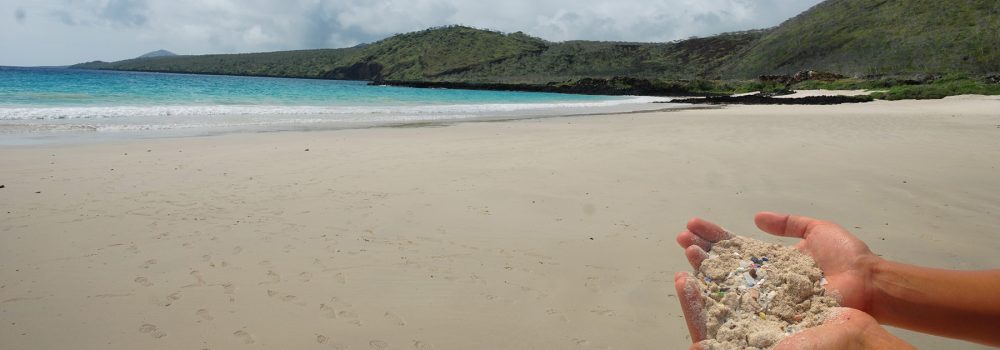
Whilst the Galapagos Archipelago remains one of the most pristine ecosystems in the world, sadly it is not exempt from the issue of plastic pollution © Trevor Platt
Plastic Pollution Free Galapagos Programme
Our PPFG Programme brings together an alliance of NGOs, local community and international scientists from the fields of oceanography, marine biology, ecotoxicology, environmental psychology and even archaeology to understand the best approach to tackling the issue of plastic pollution in the Archipelago. Together, under the leadership of the Galapagos National Park Directorate, and supported by key science partners Galapagos Science Center, Charles Darwin Research Station and Conservation International, we are combining ground-breaking scientific research with coordinated education and outreach to make Galapagos plastic pollution-free once again. This is a multi-million, multi-year programme that feeds directly into broader work looking to tackle pollution across the wider Eastern Pacific region.
The wider issues of plastic pollution
Plastic pollution is getting worse in the Eastern Pacific region and globally. We already know from GCT funded research that an estimated 60% of the marine plastic pollution arriving into Galapagos is coming from mainland South America and, in particular, coastal Ecuador and Peru. Plastic pollution is a particular concern in this area. The seas contain rich biodiversity – including many species that are found nowhere else on Earth – and eco-tourism and fishing are major sources of income. In Galapagos, at least 18 different species, including turtles, marine iguanas and sea lions are recorded as being entangled by plastic such as bags and lines or having ingested it after mistaking it for food.
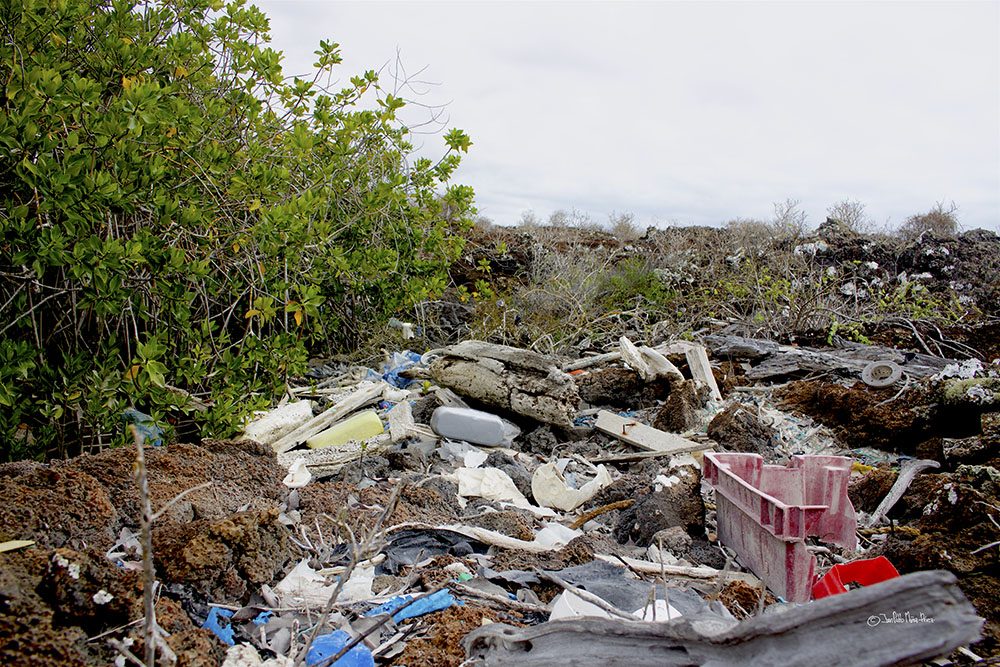
Plastic pollution on a beach in Galapagos © Juan Pablo Munoz
The aims of the project
This project will build on existing work to map the sources of plastic waste, investigate its impacts, and generate solutions to reduce waste and pollution. We will work together with governments, businesses, NGOs, local scientists and communities to “co-design” effective, long-lasting ways to cut plastic pollution.
“Our vision is to reduce plastic leakage in the Eastern Pacific region, by creating a more circular economy; by designing out waste and pollution, keeping items in use for longer and regenerating natural systems” said project leader Professor Tamara Galloway, of Exeter’s Global Systems Institute and one of GCT’s expert advisors on the PPFG programme.
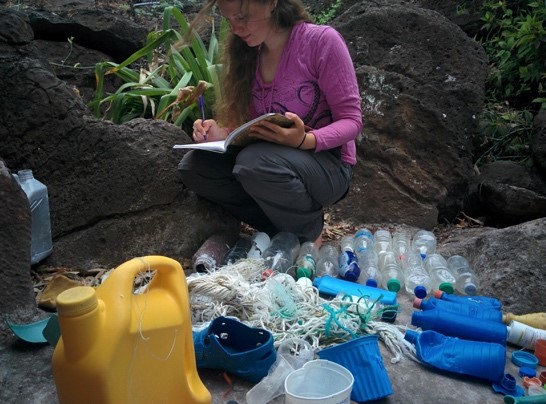
Jen Jones is GCT’s Head of Programmes and a PhD student at the University of Exeter investigating the impacts of microplastics on the Galapagos marine foodweb © GCT
“We want to create solutions that benefit everyone – from poorer coastal communities to people in huge cities – and are also good for wildlife and wider ecosystems,” said Jen Jones, Head of Programmes at Galapagos Conservation Trust and PhD researcher at the University of Exeter. “Workshops with local people are a key part of our approach, and many of our best ideas have come from schoolchildren who are concerned about plastic pollution”. AT GCT, we firmly believe that empowering local people, especially young people, is critical for building a culture of sustainable living and environmental awareness.
Ultimately, the project aims to create self-sustaining solutions that benefit both people and wildlife, keep plastic out of the oceans and provide a ‘toolkit’ that can be used to tackle plastic pollution elsewhere in the world.
To find out more about the Plastic Pollution Free Galapagos Programme, please visit our project page and blog for project updates.
How you can help
Please help us to make Galapagos plastic pollution free by donating today.
Related articles

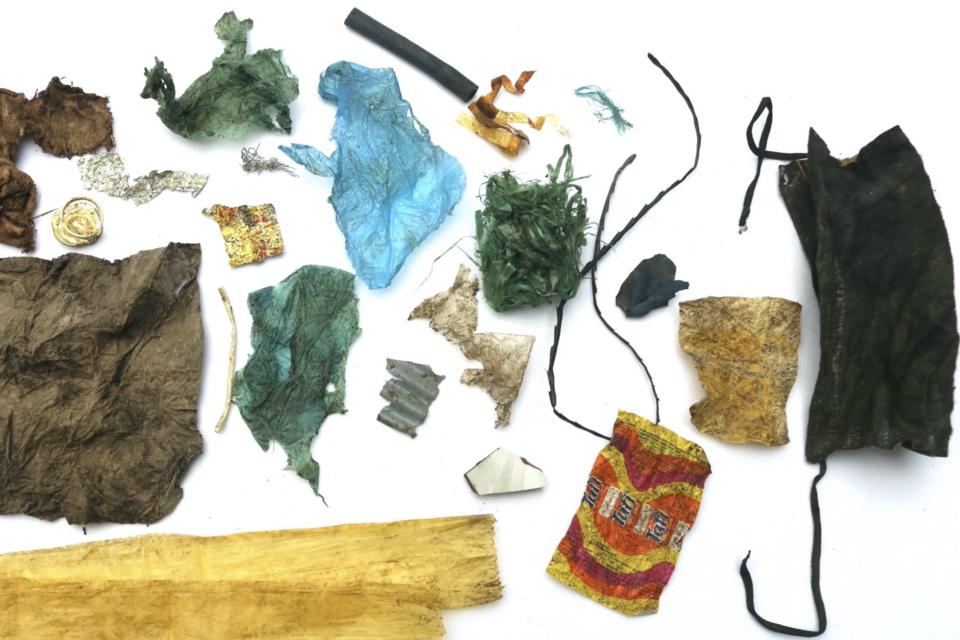
New research shows that Galapagos giant tortoises are ingesting plastic waste
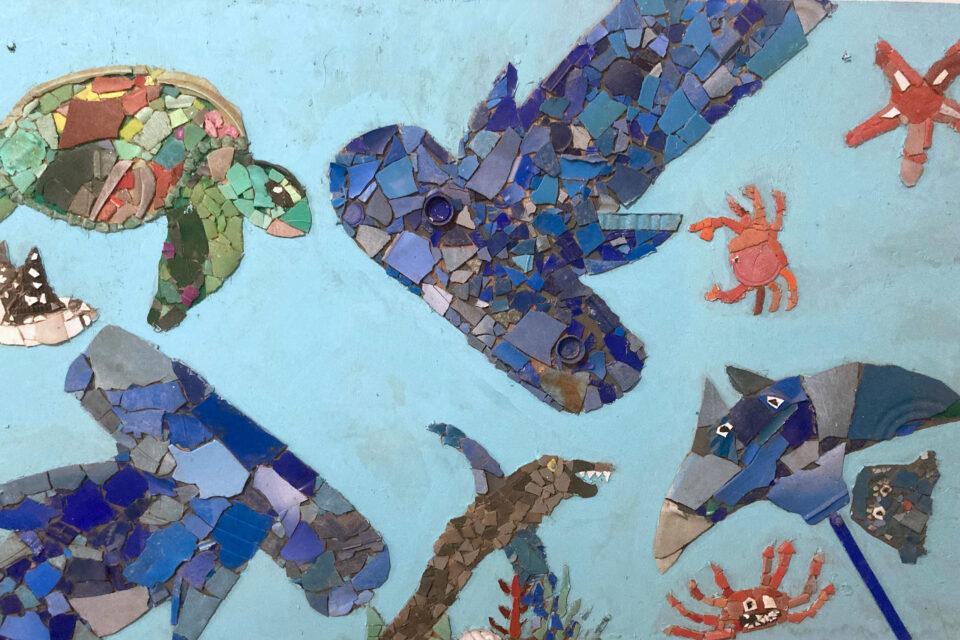
Creating a circular economy for plastics in Galapagos
